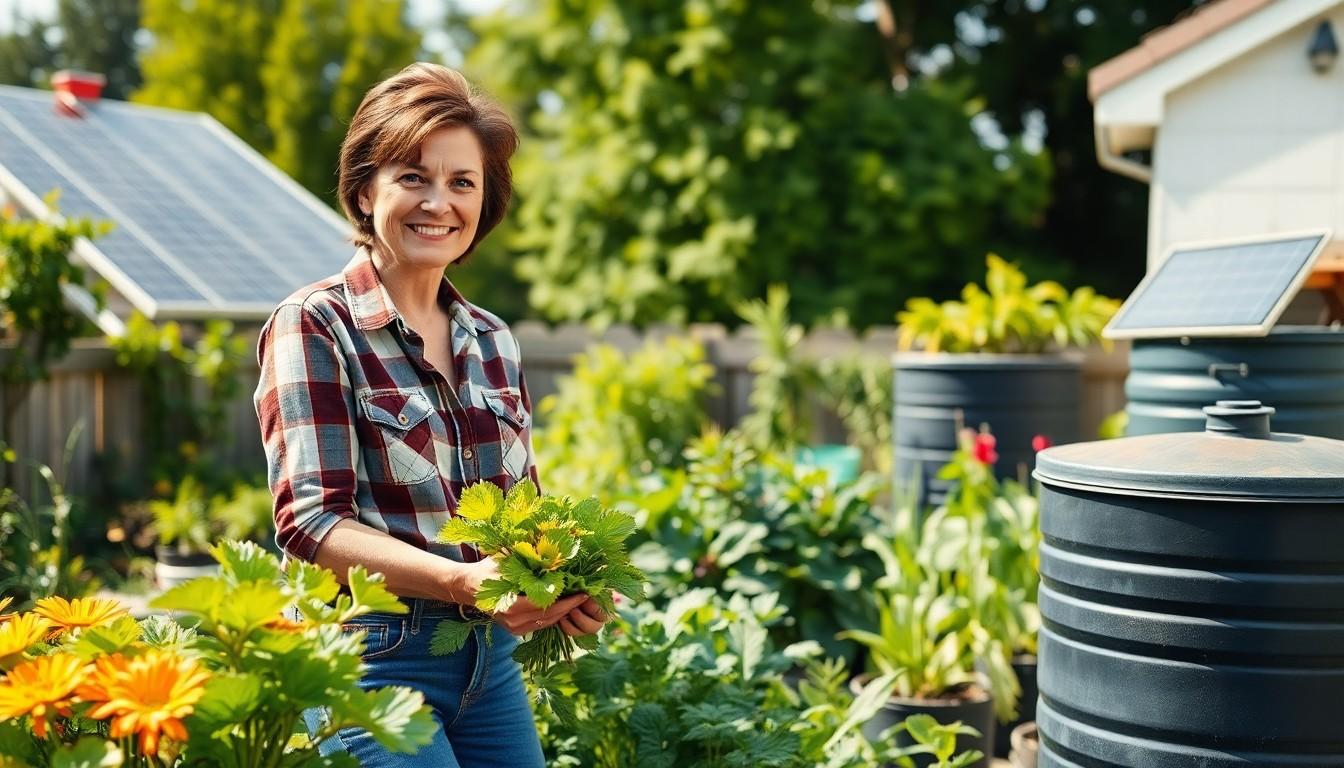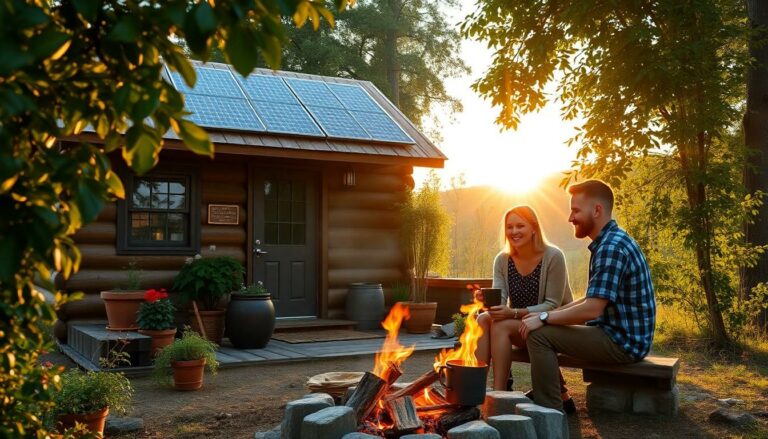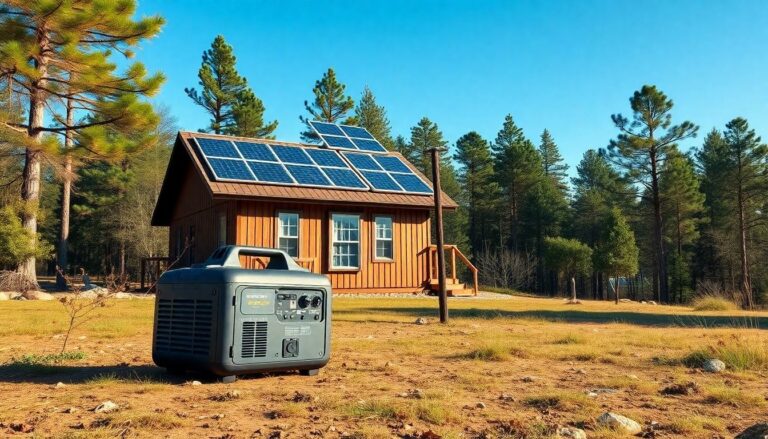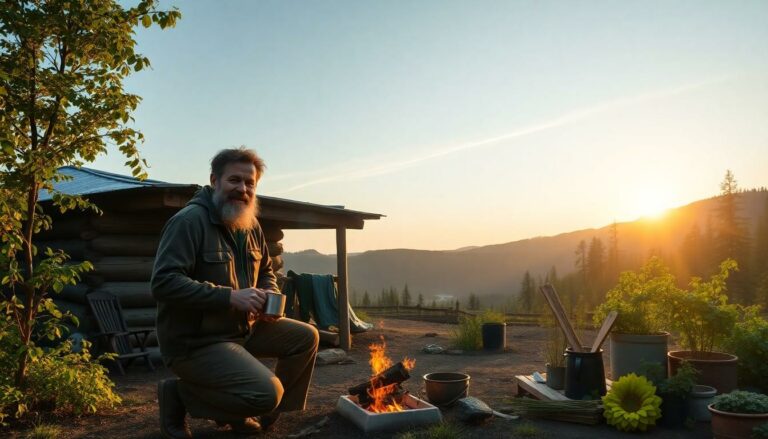Imagine waking up to the sound of chirping birds instead of blaring alarms, sipping coffee brewed from your own solar-powered machine, and enjoying the peace that comes from living off the grid. Off-grid living isn’t just a trend; it’s a lifestyle choice that promises freedom from the chaos of modern life. With the right solutions, anyone can swap city lights for starlit skies and noisy neighbors for the soothing rustle of leaves.
But let’s face it—going off-grid might sound like a scene from a hipster’s dream journal. Fear not! It doesn’t mean you have to trade your Wi-Fi for a wood stove or give up hot showers for a bucket of cold water. From solar panels to composting toilets, there are plenty of innovative solutions that make off-grid living not just feasible but downright enjoyable. Get ready to explore how to embrace this adventurous lifestyle without sacrificing comfort or convenience.
Off Grid Living Solutions
Off-grid living solutions encompass a variety of technologies and strategies. Solar panels serve as a primary energy source, converting sunlight into electricity. Wind turbines also harness natural energy, providing additional power for households.
Rainwater collection systems capture and store water, ensuring an independent water supply. Many off-grid homes utilize a combination of these methods to meet their energy and water needs effectively. Composting toilets offer eco-friendly waste management options, eliminating the need for traditional plumbing and conserving water.
Efficient heating and cooling methods reduce energy consumption significantly. Passive solar design makes use of sunlight for natural heating, while thermal mass materials help maintain comfortable indoor temperatures. Utilizing wood stoves or biofuels provides additional heating without relying on gas or electricity.
Food production plays a vital role in off-grid living. Growing fruits, vegetables, and herbs ensures a sustainable, fresh food supply. Many off-grid dwellers raise animals for meat, eggs, and dairy products, further enhancing self-sufficiency.
Connectivity doesn’t require conventional internet services. Satellite internet or mobile hotspots offer reliable alternatives for communication and information access. With the right tools, individuals can maintain a connection to the outside world without compromising their off-grid lifestyle.
Overall, adopting off-grid living solutions makes it possible to enjoy independence and serenity while embracing modern comfort. Exploring these options can reveal an exciting path toward a more sustainable and fulfilling life in harmony with nature.
Benefits of Off Grid Living
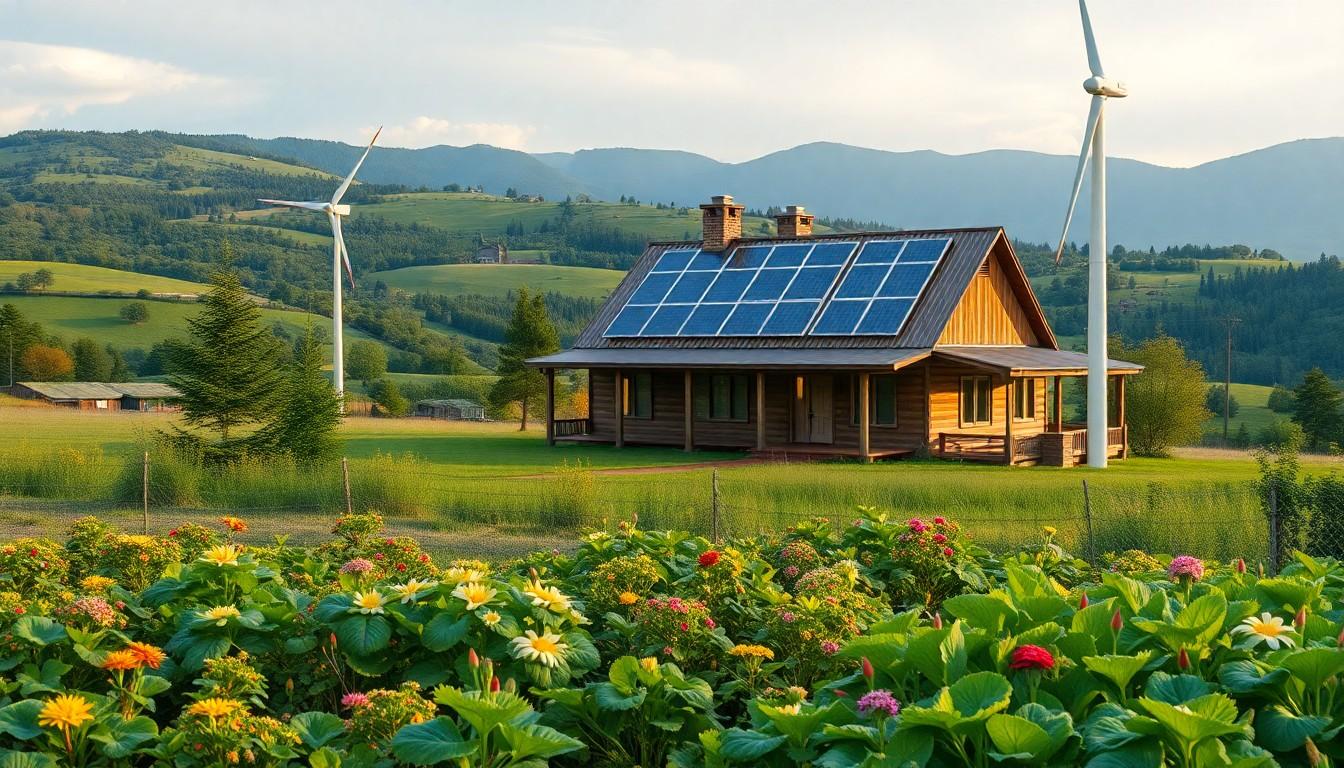
Off-grid living presents numerous advantages, making it an appealing choice for those seeking independence. The lifestyle fosters a strong connection with nature while ensuring sustainable practices.
Environmental Impact
Off-grid homes drastically reduce carbon footprints. Utilizing renewable energy sources like solar panels and wind turbines promotes cleaner air. Rainwater harvesting systems offer sustainable water solutions by conserving local water resources. Efficient waste management practices, including composting toilets, minimize environmental pollution. Growing food through organic gardening reduces reliance on industrial agriculture. By prioritizing eco-friendly solutions, off-grid living contributes to preserving natural habitats and biodiversity.
Cost Savings
Significant savings on utility bills occur with off-grid living. Initial investments in renewable energy systems often pay off through reduced electricity costs. Maintaining independence from conventional energy companies results in long-term financial security. Growing one’s own food minimizes grocery expenses, enhancing overall self-sufficiency. Off-grid properties may also have lower property taxes due to their unique standing. Additionally, reduced reliance on public utilities creates more budget flexibility for other expenses.
Essential Off Grid Living Solutions
Off-grid living encompasses various approaches that maximize self-sufficiency while minimizing reliance on conventional utilities. Implementing effective solutions ensures comfort and practicality in a sustainable lifestyle.
Renewable Energy Sources
Solar panels serve as a vital energy source for off-grid living. They convert sunlight into electricity, allowing individuals to power appliances and equipment. Wind turbines generate energy from wind, providing an additional renewable option. Both solar and wind solutions can be combined to create a resilient energy system. Biomass energy, sourced from organic materials, further supports off-grid living by providing heat and electricity.
Storing energy in batteries enhances reliability during low-generation periods. Using generators in emergencies offers an alternative backup power source. Each renewable energy solution contributes to lowering carbon footprints, promoting a more sustainable off-grid lifestyle.
Water Management
Effective water management is essential for off-grid living, ensuring a reliable supply of clean water. Two vital components include rainwater harvesting and water filtration systems.
Rainwater Harvesting
Rainwater harvesting offers a sustainable solution for collecting water. Systems gather rainwater from roofs or surfaces and direct it into storage tanks. These systems reduce dependence on external sources. Various methods, such as gutter systems, improve efficiency by channeling rainwater effectively. Storing collected rainwater in tanks provides ample water for gardening, household use, and livestock.
Water Filtration Systems
Water filtration systems play a crucial role in maintaining water quality. Several options exist for off-grid settings, including gravity filters and reverse osmosis units. Effective filtration removes contaminants and harmful microorganisms, ensuring safe drinking water. Systems may require minimal maintenance and often utilize gravity for operation. Regular monitoring of filter performance keeps water supplies safe and clean.
Off Grid Lifestyle Considerations
Off-grid living involves various important factors beyond just basic needs. Community connections and understanding local regulations play critical roles in ensuring a successful transition.
Community and Support Networks
Finding a supportive community enhances the off-grid experience. They often provide valuable resources, encouragement, and practical advice. Joining local Facebook groups, attending meetups, or connecting with experienced individuals fosters relationships that make the journey smoother. Additionally, sharing resources like tools or knowledge helps build a more sustainable lifestyle. Forming alliances can ease challenges such as obtaining materials or troubleshooting systems. Collaborative growing initiatives or cooperative purchasing arrangements strengthen the sense of community and promote resilience.
Legal and Zoning Issues
Understanding legal and zoning regulations is essential for off-grid living. Each locality has its own rules regarding building codes, land use, and water rights. Ignoring these regulations can lead to fines or property disputes. Researching zoning laws before purchasing land helps identify potential restrictions or requirements. Engaging with local officials ensures compliance and encourages smooth project implementation. Some areas might have specific permits or inspections needed for solar installations or wastewater systems. Staying informed about these regulations aids in planning and contributes to the sustainability of the off-grid lifestyle.
Enjoying a Fulfilling Llifestyle
Embracing off-grid living is an empowering choice that fosters independence and sustainability. With the right solutions in place individuals can enjoy modern comforts while reconnecting with nature. By investing in renewable energy sources and efficient water management systems they can significantly reduce their environmental impact.
The journey toward self-sufficiency not only enhances personal well-being but also contributes to a healthier planet. Building connections within supportive communities and understanding local regulations can further ease the transition. Off-grid living isn’t just about survival; it’s about thriving in harmony with the environment while enjoying a fulfilling lifestyle.

